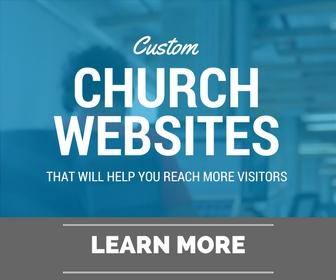You already have a church website, but the only visitors are your church members. Your website just isn’t attracting the traffic you expected.
It’s a common problem, but one that is usually fixed through better church SEO practices. The idea is to make sure your church comes up on the first page of search results when someone looks for churches in a specific area.
With just a little work, you can draw in visitors to your church’s website naturally. This leads to your ultimate goal – more visitors to your church.
1. Add Location Details
When someone is looking for a church, they’ll enter three things in a search engine – city/state, denomination, and the word “church.” If your website only lists the city once, it probably won’t rank high in search results. Include the city and denomination, if applicable, to your footer and/or header so it shows up on every page. Including your location in your schema is ideal. Think of your location as one of the main keywords to optimize on your site.
2. Place Your Keyword In Key Places
Use keywords naturally on your church website. Use keywords and phrases that people would use to search for your site. For optimal results, add keywords to specific areas, such as:
- Subheads
- Page titles
- Within text (up to 2.5%) – Google does recognize synonyms, so high keyword density isn’t vital
- On page description
- Within meta description
- In image name/description
3. Manage Local Listings
 Your website isn’t the only place where people might find your church. Online business listings provide your location, hours and even reviews. If you’re not actively managing these, people may find false information. These sites are also a great place to list your website, so visitors find out more about your church.
Your website isn’t the only place where people might find your church. Online business listings provide your location, hours and even reviews. If you’re not actively managing these, people may find false information. These sites are also a great place to list your website, so visitors find out more about your church.
While you don’t need to use every site, updating details on some of the top local business listing sites helps with your church SEO.
4. Name Your Images
A picture is worth a thousand words, except that Google can’t “read” images. If you want images to help with SEO, you need to give them a name outside of IMG82937.jpg. Use a relevant keyword to name the image. For instance, this post might call it’s image “church SEO best practices.” Google then has words to tie to the image and better rank it.
5. Opt For Responsive Design
Google changed its algorithm to place more emphasis on mobile-friendly websites. Many potential visitors are coming from mobile devices and if your site isn’t mobile-friendly, it might not even show up in search results on smartphones and tablets.
An easy way to boost your church SEO is by upgrading your site to a responsive design. You can check if your site meets Google’s standards by using the free Mobile-Friendly Test tool.
6. Blog Regularly
The more pages you have indexed on Google, the more chances you have to show up in search results. On average, a blog can add 434% more indexed pages than a website alone. Plus, adding new content on a regular basis keeps visitors coming back, which is key to turning them into members of your church.
7. Include Service Details
 You now know the importance of adding location details for better church SEO, but that’s not the only information that helps your website. Outside of your city, people also want to know details about your services. In addition to your location, Google may also pick up on your worship hours. If several churches in the area list their hours, but you don’t, people are more likely to pick one of the other churches.
You now know the importance of adding location details for better church SEO, but that’s not the only information that helps your website. Outside of your city, people also want to know details about your services. In addition to your location, Google may also pick up on your worship hours. If several churches in the area list their hours, but you don’t, people are more likely to pick one of the other churches.
For best results, add all relevant hours to your header or footer. Not only is it easier for visitors to your site to find, but it makes it easier for search engines to find too.
8. Add Testimonials
People want to know how others feel about a church before attending. This is where reviews and testimonials come into play. While these sound more like something that applies to business’s only, it works for churches too. Ask members to provide testimonials about their own experiences. When someone searches for “city/denomination church reviews,” your church will show up.
Church SEO Leads To More Members
Optimizing your church website is vital to making it work for your church. Even when you’re not actively updating the site, it’s still drawing in new traffic and potential members.
Looking for more ways to market your church’s website? See how search engine marketing can help boost your church’s membership.





Comments 3
thanks for the insight.
Author
You got it Pastor Bryan! We are so glad you found it helpful!
Love point #6 Thomas. A lot of Pastors feel like they do not have time to blog and they are indeed busy with ministry. However, a lot of them are already creating content that they can use for a blog such as sermon notes, a devotional, etc..It is well worth taking a little extra time time to do for the reasons you pointed out.